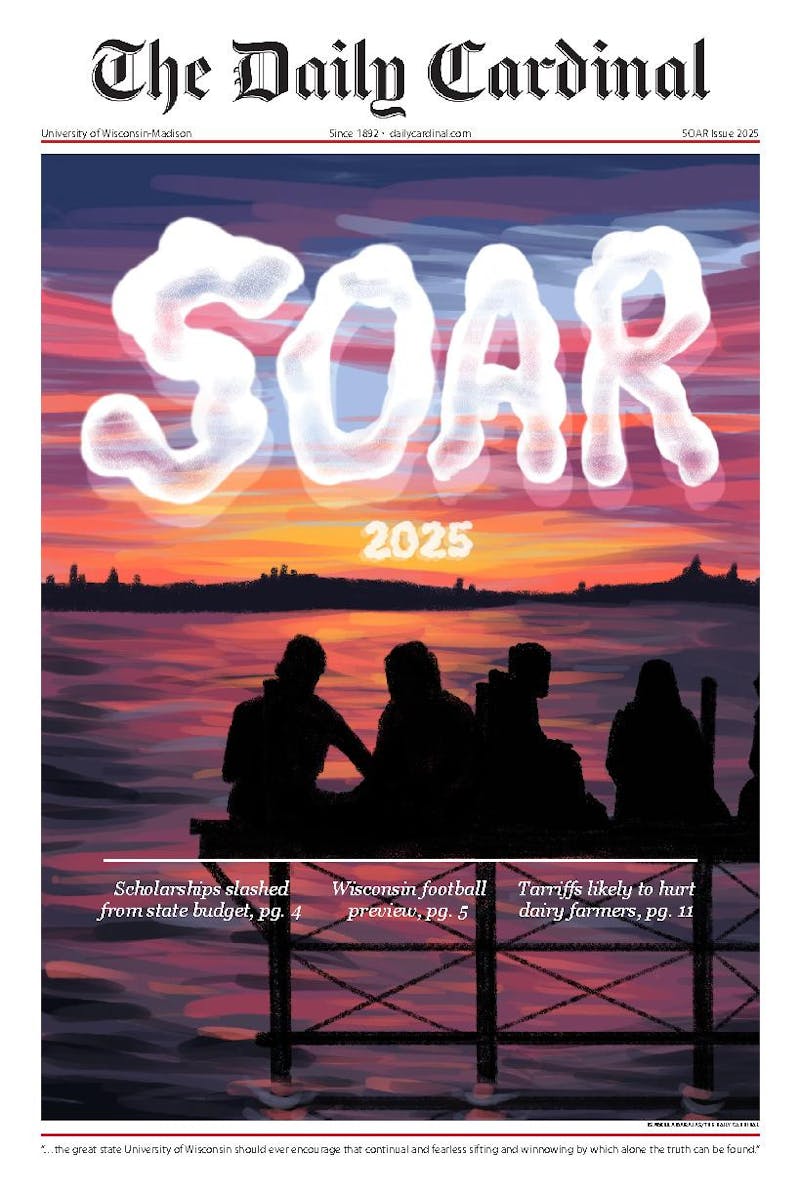A group of UW-Madison students who are analyzing media coverage of the war in Iraq reported vast differences in war coverage among various nations Monday when the group launched its Web site.
Between Sept. 13, 2002 and Jan. 15, 2003, Analyzing Media Perspectives examined 19 newspapers from 14 different nations totaling 787 front-page stories.
When studying American newspapers, the AMP found 60 percent of sources cited in articles were American. Only 13.5 percent of quotes were attributed to Iraqis and less than 2 percent came from France and Germany, which are in opposition to the war, according to UW-Madison doctoral student and researcher Atsushi Tajima.
Denise St. Clair, a UW-Madison doctoral student who contributed to the project said she found the United States and the United Kingdom use American sources much more than journalists from other countries do.
\There's so little Iraqi voice [in the United States and the United Kingdom],"" St. Clair said. ""When you move out of the U.S. or U.K., the sources are much more balanced.""
The study showed that, overall, articles include relatively little information about France and Germany's positions on the war, according to Tajima.
UW-Madison sophomore and AMP researcher Chelsea Ross, who specifically focused her research on The Washington Post, said the newspaper often neglected to mention France and Germany.
""The Post kind of ignored the fact that major U.N. players are in opposition to the war,"" she said.
Additionally, St. Clair said researchers found journalists in the United States and United Kingdom frame articles differently than journalists in other countries. In the United States and United Kingdom, 44 percent of articles supported the war, 12 percent opposed and 26 percent were balanced. The remaining 18 percent did not fit into any category.
""Ultimately, when you look at U.S. papers, it's overwhelmingly pro-war,"" St. Clair said.
However, in other countries, only 13 percent of articles supported the war while 39 percent opposed it and 19 percent were balanced.
In another study, the AMP examined six reports from different nations about a speech given by President Bush last September. According to St. Clair, each report was not free from bias.
""What was being implied [in each article] was identical to the ideology of the home government,"" St. Clair said.
The AMP also found articles in the United States used a relatively high amount of officials as sources, rather than alternative sources like residents and analysts. Official sources include the government and military. While U.S. sources consist of about 90 percent officials, Middle East sources are only 78 percent officials.





